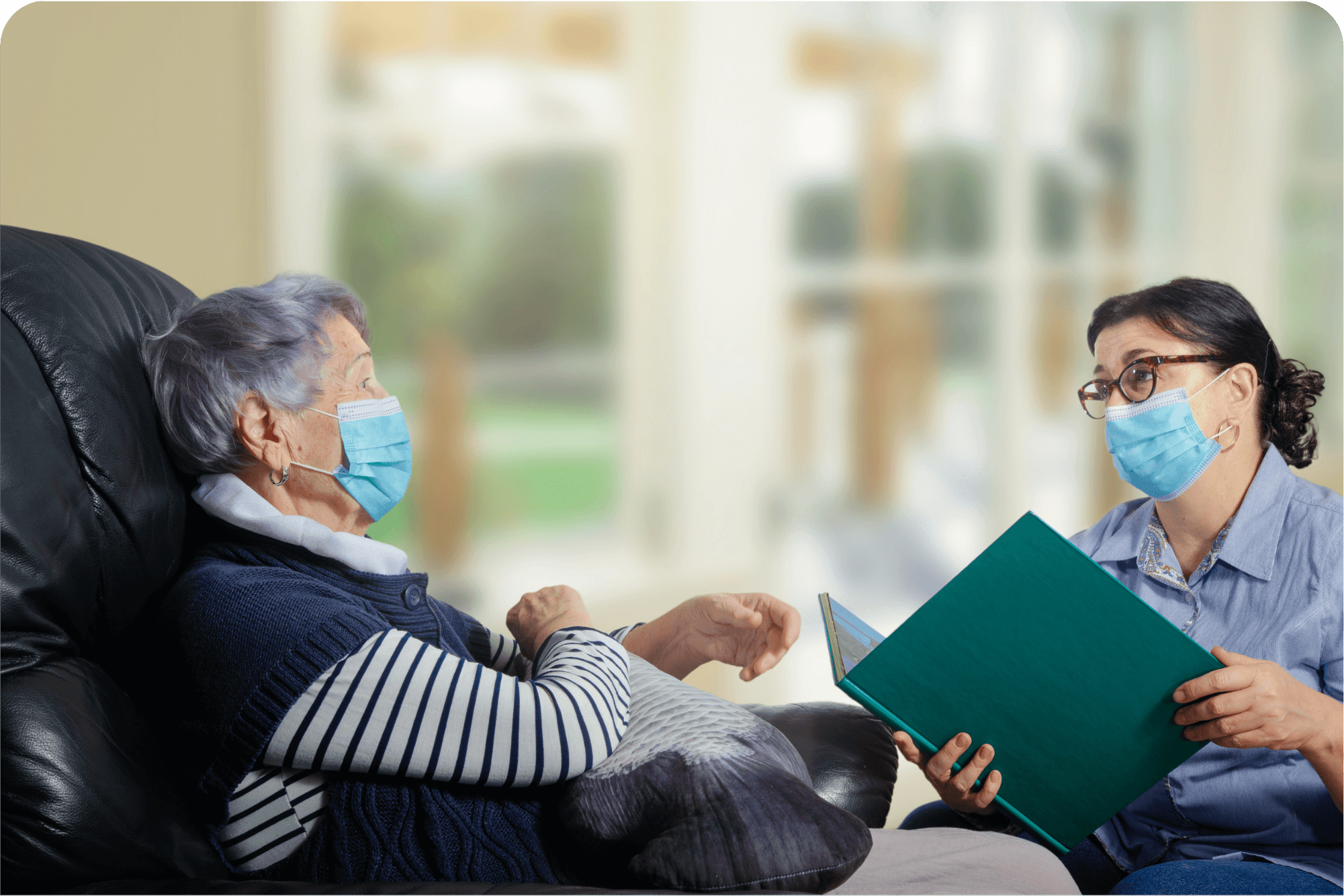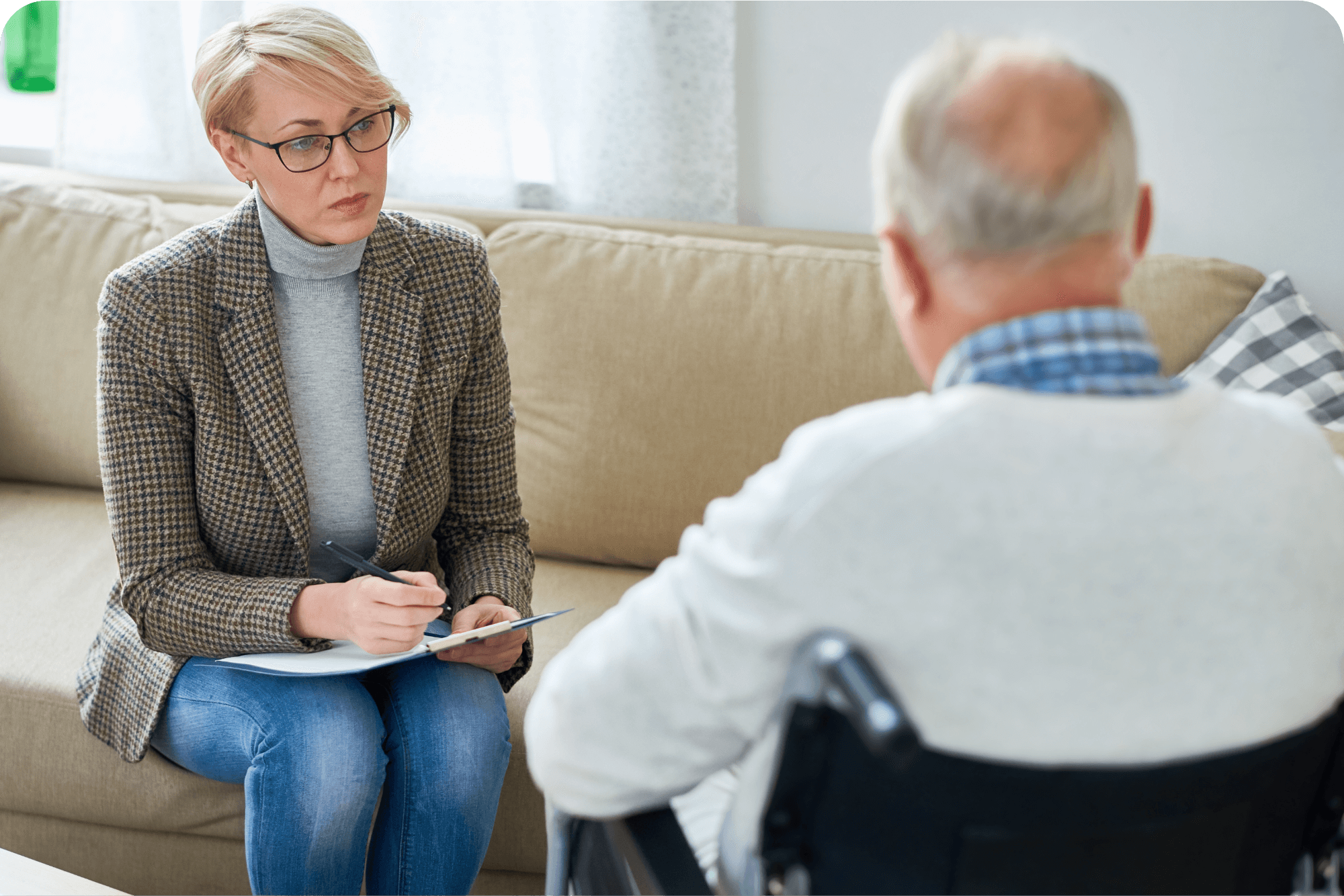Elder Abuse Prevention
Our in-home and community-based services are available to all who meet the eligibility criteria without regard to race, ancestry, national origin, language, religion, gender identity or sexual orientation.
Elder Independence is Our Focus

Protective Services
Provides twenty-four hour a day, seven day a week assistance for anyone sixty or older who has been abused, neglected, financially exploited or is at risk of harm due to self-neglect.
What is Elder Abuse?
Massachusetts law (M.G.L. Chapter 19A) defines elder abuse as an act or omission which results in a serious physical or emotional injury to an elderly person; or is the failure, inability or resistance of an elderly person to provide for himself or herself one or more of the necessities essential for physical and emotional well-being without which the elderly person would be unable to safely remain in the community.
How do I report Elder Abuse?
To report Elder Abuse call 1-800-922-2275 (Operating 7 days a week 24 hours a day.)
Click here to Report Elder Abuse Online
Who is protected?
Anyone sixty years of age or older living in the community who has suffered harm from a family member, friend, neighbor, or caretaker is protected under the law. The law also protects elders who are self-neglecting.
What is physical abuse?
Physical abuse is the non-accidental infliction of serious injuries, such as fractures, bruises, cuts, or burns. These injuries may be caused by use of a weapon, pushing, grabbing, or by physically restraining an elder.
What is emotional abuse?
Emotional abuse is any deliberate use of language or behavior against an elder which causes severe anxiety, fear, depression, or other extreme emotional reaction. Emotional abuse can be caused by threats, isolation, insults, or intimidation of an elder.
What is neglect?
Neglect is the failure or refusal of a caretaker to provide the necessities essential for physical well-being, such as food, shelter, clothing, personal care, or medical care. A caretaker is a person who has assumed the responsibility of ensuring that an elder receives the care that he/she needs. This person may be a family member or anyone with a fiduciary or contractual relationship with the elder.
What is financial exploitation?
Financial exploitation is the substantial monetary or property loss to an elderly person caused by fraud, duress, trickery, deceit, or by threat of force.
What is self-neglect?
Self-neglecting elders are individuals who are unable to meet their essential needs for food, clothing, safe and secure shelter, personal care, supervision, and medical care, due to mental or physical impairments, substance abuse, cultural or linguistic barriers, and who are unable to remain safely in the community without assistance.
Program Philosophy
Protection of adults seeks to achieve simultaneously and in order of importance: freedom, safety, the least disruption of lifestyle, and the least restrictive care alternative.
Who should report Elder Abuse?
Anyone who has reasonable cause to believe that an elder has been abused or is self-neglecting should report it. Some professionals are mandated by law to report elder abuse and self-neglect including physicians, nurses, social workers, police officers, firefighters/EMTs, and home health aides. Anyone who reports alleged abuse in good faith shall not be liable in any civil or criminal action. The identity of the reporter is kept confidential.
After making an oral report, the Mandated Reporter form should be completed and returned within 48 hours to the designated Protective Service Agency.
Click to Open the Mandated Reporter Form
What happens after a report is made?
A Protective Services caseworker will conduct an assessment to determine if abuse, neglect, financial exploitation, or self-neglect has occurred. If confirmed, the caseworker will coordinate the services necessary to alleviate the harm. Services may include referrals for medical care, in-home assistance, or legal resources. Certain situations may require police or district attorney intervention as well. Services may only be provided in accordance with the elder’s wishes unless the elder lacks the capacity to consent.
How do I report Elder Abuse?
To report Elder Abuse call 1-800-922-2275 (Operating 7 days a week 24 hours a day.)

Long-Term Care Ombudsman Program
Ombudsmen are trained and certified advocates who visit nursing and rest homes on a weekly basis to monitor conditions and to meet with resident to discuss their concerns about their care.
Established in Massachusetts in 1973, the Long-Term Care Ombudsman Program provides nursing and rest home residents with a means and opportunity to voice their concerns about their care and treatment.
Ombudsmen are trained and certified by the Executive Office of Aging & Independence to act as advocates for nursing/rest home residents. They make weekly unannounced visits to facilities to observe and monitor conditions and to address residents’ complaints. With the resident’s permission, the Ombudsman will speak to the appropriate staff member to try and resolve the problem.
Ombudsmen can help you with complaints or problems regarding:
- Residents’ Rights
- Quality of Care
- Food
- Residents’ Funds
- Living Conditions
- Medical Services
- Social Activities
- Medicare/Medicaid
- Transfer/Discharge Procedures
- …..and Much More!
What does the Ombudsman do?
- The Ombudsman Program is a good source of information about selecting long term care facilities, eligibility, residents’ rights, and other available services.
- The Ombudsman serves as an advocate for long term care residents, as a problem solver, mediator, and negotiator.
- The Ombudsman records complaints or problems, conducts investigations, and helps with conflict resolution.
- The Ombudsman helps nursing and rest home residents live with dignity and respect, and seeks to improve the quality of their lives.
- The Ombudsman advocates for positive changes in the long term care system.
- In addition to these services, the Long-Term Care Ombudsman Program offers assistance and training to public and private organizations on issues effecting nursing and rest home residents.
Who can use the Ombudsman services?
- Residents, regardless of age, in any long term care facility.
- Friends and relatives of the long term care resident.
- Long term care staff members with resident related concerns.
- Anyone interested or concerned about the welfare/quality of life of long term care residents.
Know Your Rights
- You must receive equal treatment regardless of sex, race, creed, nationality, or payment method.
- You have the right to be treated with consideration, respect, and dignity.
- You have the right to help plan your own medical care.
- You have the right to be free from chemical or physical restraints, and from mental or physical abuse.
- You have the right to manage your own money.
- You have the right not to be transferred or discharged without cause or notice.
- You have the right to discuss problems with staff without fear of retaliation.
- Your rights are protected by state and federal law.
To find out more about the Long-Term Care Ombudsman Program and how it can assist you, contact the Program Director at (508) 394-4630 or 1-800-244-4630. All Calls are Confidential.
